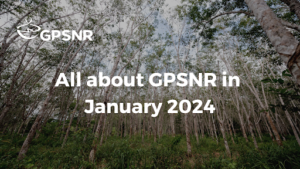Strategy and Objectives Working Group: ASI finished the initial draft of the Assurance Model proposal and presented it to Working Group (WG) members in December for their feedback. To gather more specific insights, feedback calls were arranged with various categories. Based on the feedback received, ASI plans to revise the draft and present it for further discussion at the February in-person meetings.
Smallholders Representation and Capacity Building (SCB) Working Group: Smallholder representatives attended the 5th Sustainable Rubber Plantation and International Conference in Buriram, Thailand, from December 13-15, 2023, to discuss sustainable practices. A consultation on the assurance model was held on January 25, 2024. Both SNV-Proforest’s Indonesia GAP and SNV-IRRI’s Disease Fighting project concluded in December 2023, with final reports submitted. Koltiva’s Indonesia GAP project, extended until September 2024, received additional funding from Goodyear.
The Thailand agroforestry project signed a supplemental agreement for more projects. Southland and Sri Trang joined the Thailand GAP project as processors, with training material under review.
The Digital Knowledge Sharing Platform (KSP) task force completed its user acceptance test, releasing the Rubber Wiki app on the Google Play Store. Koltiva was awarded the third phase of KSP for content development with the task force’s content development phase kicking off on January 25, 2024.
Continental pledged funds for capacity-building in Cote d’Ivoire. The Cote d’Ivoire subgroup will discuss new Continental-funded projects.
Two SCB WG meetings were scheduled on December 26 and 31 for final presentations and updates on various projects, including endorsements. The Thailand Agroforestry project plans training for late January 2024, and the Thailand GAP project aims to start training in late January or February 2024. The Income Diversification and Rubber Agroforestry task force is planning its third agroforestry workshop in Liberia from May 22-24, 2024.
Shared Responsibility Working Group: The Working Group is initiating initial steps to explore ways to develop a value transfer mechanism in GPSNR. The Secretariat has discussed possible paths with the co-chair, who will present these plans to the EC in the near future.
Executive Committee: The EC convened for an in-person strategy planning session in Paris, where they identified and outlined key strategic priorities in a Gantt chart. he Secretariat, along with members and WGs, will collaborate to implement these strategic priorities set forth by the EC.





